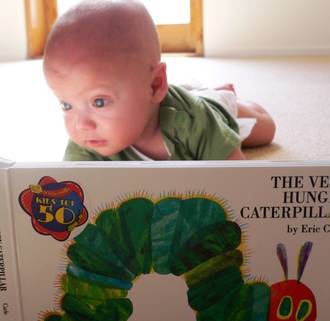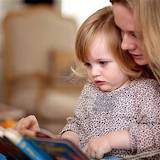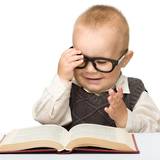Shop
01270
https://www.under5s.co.nz/shop/Hot+Topics+Articles/Toys+Books+Play/books+reading+and+writing/The+power+of+books.html
The power of books
|
Reading to your child every day is a wonderful way to spend some time with them and support them in their learning. Snuggling up with your child and reading them stories helps them to develop a positive attitude towards books.
|
You might also be interested in ...
Choosing great read aloud books
So how do you choose a great read aloud book when there are so many good children’s books out there? Books that will become firm family favourites and hold your children’s interest time and time again. Check out these 4 tips to help you find read aloud books that your baby, toddler or pre-schooler will love.
Benefits of reading to babies
A book is a baby’s first theatre and now US paediatricians are urging parents to read to children from their earliest days. Even the smallest babies are ready and eager to engage and tune into what is being read to them.
join usJoin us on social media for all our latest news. |
sign upSign up and receive our latest newsletters. |
|







Snuggling up with your child and reading them stories helps them to develop a positive attitude towards books.
Books are a cornerstone of today’s curriculum in schools and universities.
Children who develop positive attitudes towards books early on in their life, find learning to read an easier process than children who haven’t developed an interest in books and reading.
Research shows that the number of books a child grows up with in their home and/or daycare is related to how many years of education they will complete.
A study of more than 70,000 children across 27 countries revealed that children who grew up in homes with many books receive 3 years more schooling than children from bookless homes.
Books enable children to experience stories and symbols of their own and other cultures and help them to develop in-depth language and communication skills. Books also help spark their imagination.
You do need to remember though that preschool children have an attention span of around 10 to 12 minutes! Once it is exhausted, learning is no longer fun for them.
You can keep things fun and support your child’s learning by asking them simple open-ended questions such as “What do you think will happen next?”, “How do you think they feel?”, “What do you think they will do next?”.
These types of questions will help your child to place themselves in other children and people’s shoes, supports them in predicting what may happen next and it will also encourage them to problem solve.
Check out our other Hot Topics on: